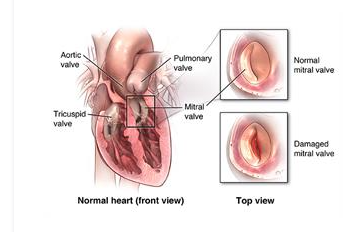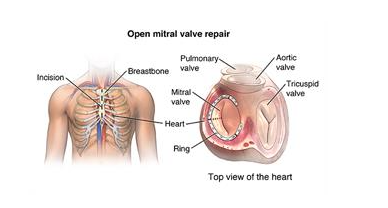We’re Stronger Together
With your help, we can make ambitious innovations in clinical care and education for our community.
The mitral valve sits between the two left chambers of your heart — the left atrium and the left ventricle. The valve has flaps, called leaflets, that open to allow blood through and then close to keep the blood from flowing backward during each heartbeat. Mitral valve disease occurs when the valve does not open or close properly, causing your heart to work harder. Over time, this strain can lead to serious health issues, including but not limited to, irregular heartbeat, heart failure, blood clots, stroke, and even death.
Our cardiothoracic surgeons combine leading expertise with state-of-the-art technology to treat mitral valve disease. With proactive treatment, we can help restore mitral valve function and improve your quality of life.
Referring providers: Call 909-558-4208 to refer a patient for mitral valve treatment.

Treatment for mitral valve disease depends on the severity of the symptoms. In many cases, surgery may be the best option to prevent serious long-term complications and improve your quality of life. Whether your mitral valve needs to be repaired or replaced ultimately depends on the valve’s condition. In addition, age, other existing health conditions, and your lifestyle can also impact this decision. Your surgeon will help you decide what’s best for you.
For mitral valve regurgitation: We specialize in repairing leaky mitral valves using advanced techniques that restore proper closure of the valve. This often includes reshaping or supporting the valve with an annuloplasty ring, a support ring that helps reshape and tighten heart valves. Surgical repair is often preferred due to fewer complications and better long-term durability.

For mitral valve regurgitation and stenosis: If repair is not possible, we may recommend valve replacement using mechanical or biological prosthetic valves. Mechanical heart valves can potentially last a lifetime but require lifelong use of blood thinners. On the other hand, biological valves (pig or cow) do not require use of blood thinners but can wear out and fail over time. Our team will help you decide which route to take.
We are one of the only hospitals in the area with both the equipment and the specialized expertise needed to perform robotic-assisted mitral valve procedures safely and effectively. This advanced option can mean less pain, shorter hospital stays, and a quicker return to your daily life compared to traditional open-heart surgery.
Recovery depends on the type of procedure performed, i.e., robotic-assisted vs traditional mitral valve surgery. We provide ongoing follow-up care, cardiac rehabilitation, and lifestyle adjustments to help bring you to a full recovery.
We’ll provide you with more information about the recovery process upon discharge.
We’re here to guide you every step of the way. Call our cardiothoracic surgery outpatient clinic at 909-558-4208 for more information or ask your cardiologist or primary care provider for a referral.
Fatigue, shortness of breath, lightheadedness, irregular heartbeat, and related symptoms can be signs of mitral valve disease, but experiencing these symptoms doesn’t necessarily mean you have it. These symptoms are common in many other health conditions as well. It’s important to speak with your doctor for a proper evaluation and diagnosis.
Treatment options depend on the severity of your condition. Many cases require surgery to repair or replace the mitral valve. Our team will help determine the best option for your needs.
Recovery varies by procedure. We provide personalized aftercare, including follow-ups, cardiac rehab, and lifestyle support to help you heal and return to daily life.
With your help, we can make ambitious innovations in clinical care and education for our community.